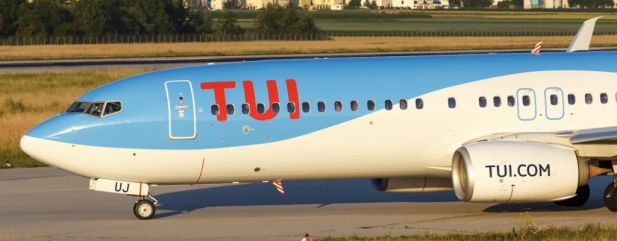Airlines and holiday companies face a precarious future and there’s no guarantee they’ll survive what could be a long-term travel freeze and slow recovery. However, the London-listed operators apart from TUI (TUI) look better placed than their European rivals.
EasyJet (EZJ), Wizz Air (WIZZ) and Ryanair (RYA) all say they are in a strong financial position. But as British Airways chief executive Alex Cruz told employees last week, in these troubled times for aviation, ‘airlines with a weak balance sheet, or carrying large debts, are facing a dire future’.
For some international airlines like Norwegian Air, SAS, Cathay Pacific and Korean Air, the future looks incredibly bleak.
Airlines are now dramatically reducing capacity and grounding large numbers of planes due to travel restrictions. Cruise companies are also scaling down operations.

Analysts at Citi have calculated that a three-month shutdown would leave Ryanair’s net debt-to-earnings at a multiple of 1.2 and EasyJet’s at 1.9, with International Consolidated Airlines (IAG) having a ratio of 3.4. Generally a figure below 3.5 is deemed to be acceptable.
By contrast, their European counterparts like Air France-KLM would have a net debt-to-earnings ratio of 7.7, or 12.4 in the case of Lufthansa.
Dart Group (DTG:AIM), which owns the Jet2 airline and package holiday company, has been the biggest faller among London-listed airline stocks in share price terms, plunging 75% year-to-date.
It has suspended all flights to Spain with the country on lockdown. It’s a big blow to Jet2, with Spain accounting for half its seat total.
The big concern among the London-listed travel firms is TUI, which unlike the aforementioned companies is also involved in the embattled cruise industry.
The Anglo-German tour operator has around €5bn in debt, and according to the Financial Times, the cost of insuring that debt has risen fourfold since
mid-February.
TUI says it has €1.4bn in cash and available facilities on its balance sheet, but Jefferies analyst Becky Lane previously highlighted that a large amount its cash would be from customer deposits that might have to be refunded.
The company has applied for state aid guarantees until normal operations are resumed, but its future is far from certain.
‹ Previous2020-03-19Next ›

 magazine
magazine









